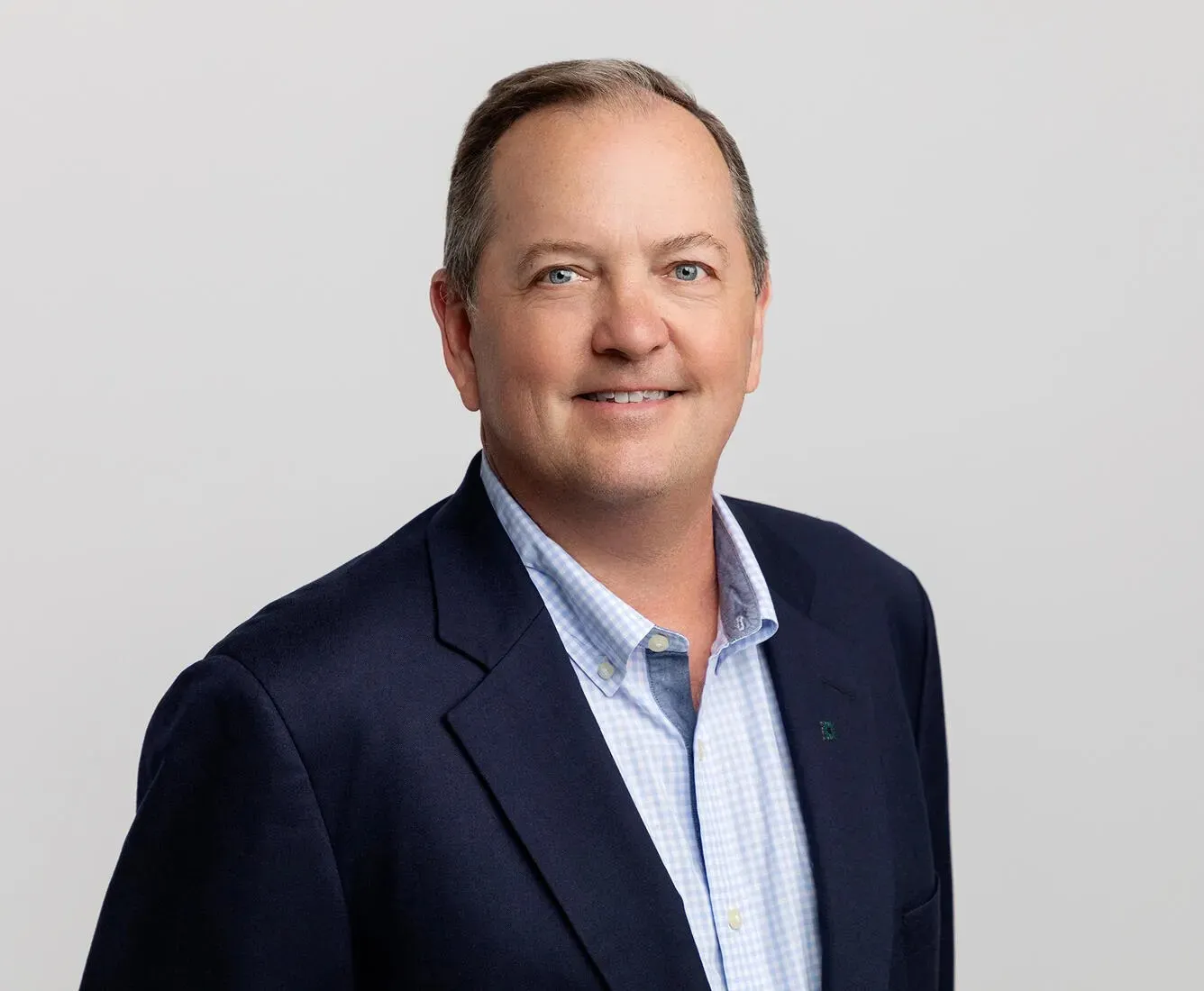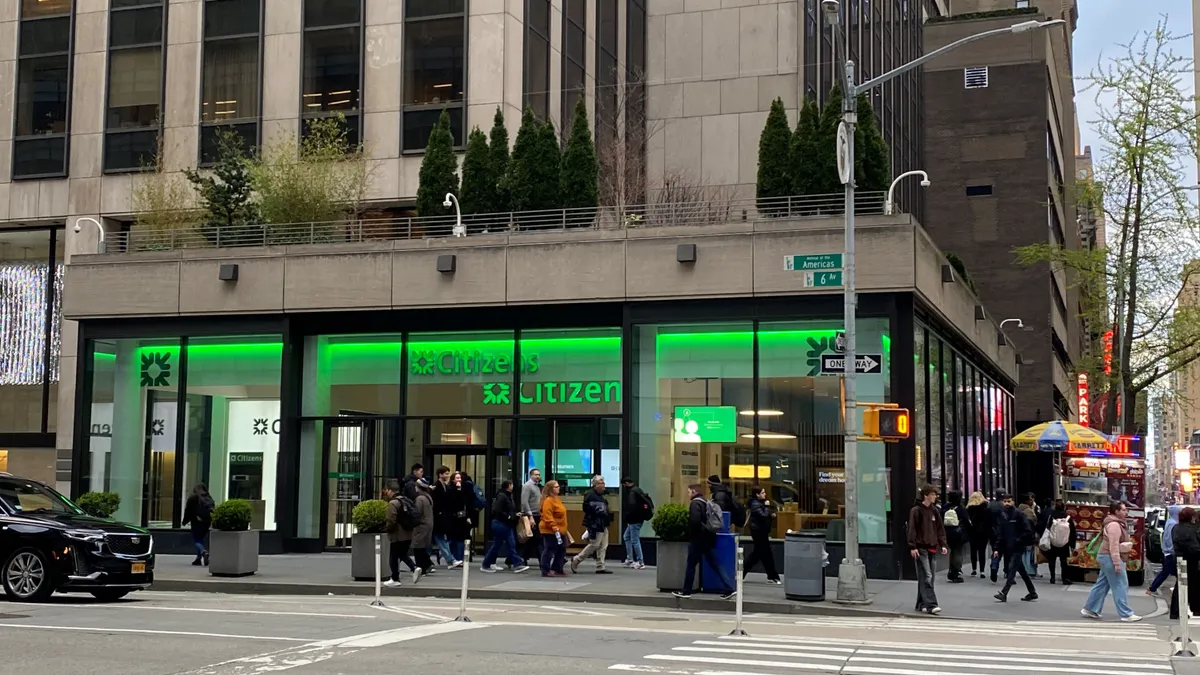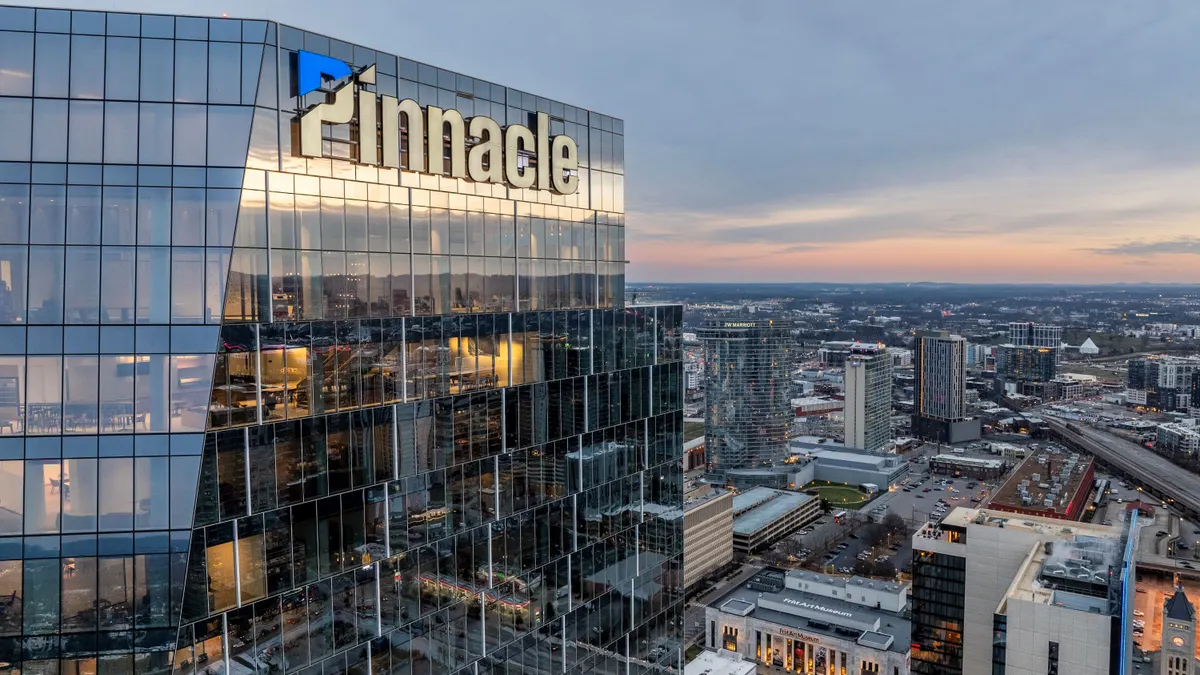As tariff uncertainty lingers, Citizens’ commercial bank clients have settled into the uncertainty, “now that we’re three months into this and people have kind of seen the movie,” said Don McCree, the regional lender’s commercial banking chief.
“I’m kind of feeling like the trade movie is behind us,” he said during an appearance last week at a Morgan Stanley investor conference. McCree pointed to the prospect of progress reflected in U.S.-China trade negotiations recently, comparing that to the “insane” atmosphere six weeks ago. “I actually used to bank Mr. Trump, so I know how he negotiates,” McCree mentioned as an aside.
As tariff volatility and uncertainty around U.S. trade has left business owners craving clarity, merger-and-acquisition activity and commercial loan growth have been muted to some extent. Citizens, whose commercial business is national, banks about 4,000 middle-market companies and has bulked up its investment-banking and private-equity capabilities in recent years.

CEOs McCree has met with recently have been “pretty sanguine,” he said.
“By and large, they’ve adjusted, and they’re adjusting,” he said of the Providence, Rhode Island-based bank’s commercial clients. Some may not be pulling the trigger on an investment or acquisition at the moment, “but there’s not a lot of real worry out there among the client base.”
“It just seems like the crazy uncertainty is kind of off the table,” McCree said. “You’re getting a little bit of change in psychology from, ‘I’m just going to stop and go to the sidelines’ to, ‘Hey, I see some opportunity out there and if I actually have capital and I can strike against that opportunity, I’m going to engage in it.’”
That’s set to bolster capital markets activity the $220 billion-asset bank has lined up, he suggested, as Citizens has a number of transactions “straddling the second and third quarter” in terms of deal closure.
“Everybody is doing one more lap around the diligence on M&A deals, with tariff changes, and there doesn’t seem to be a lot of people home at the [Federal Trade Commission] right now, so if you have Hart-Scott[-Rodino Act] approvals or things like that, they’re just taking a little bit longer.”
The bank has the largest M&A pipeline it’s ever had, McCree said, and is “immune to some of the bigger challenges” because it’s handling smaller, middle-market transactions, which “tend to get less attention, so there’s a little more certainty there.” The bank’s capital markets fees dipped 15% in the first quarter, to $100 million.
A strong driver of the bank’s M&A, leveraged finance and syndicated finance activity is the generational change underneath companies, when the younger generation doesn’t want to be in the business mom and dad owned for years, McCree noted. In those cases, it can be less about maximum price and more about “social match between a buyer and seller,” he said.
Citizens has also bolstered its private capital business, although McCree called out the bank’s position on direct lender partnerships.
“We have not gone into one of these partnerships with a private credit fund,” he said. “We think that is a bad strategy, we don’t think it’s worked anywhere.”
He added: “It’s almost like you create two credit committees, and it’s very hard to deliver in terms of a credit decision that’s being originated through a bank and then funded through a private credit firm.
“Any time I’ve done partnerships with any partner, I always view it as a reputational extension of myself, and so you’ve got to create certainty for your clients and you’ve got to create deliverability, and I’ve just worried that – so we’d rather deal with all of them, as opposed to just partner with one, and we just think that creates better optionality over time,” McCree said.
Instead, Citizens has turned that nonbank category into a client set, having built a syndicate desk that sells to and finances private credit firms, he said. The bank isn’t worried about the risk in servicing private credit, he said.





















